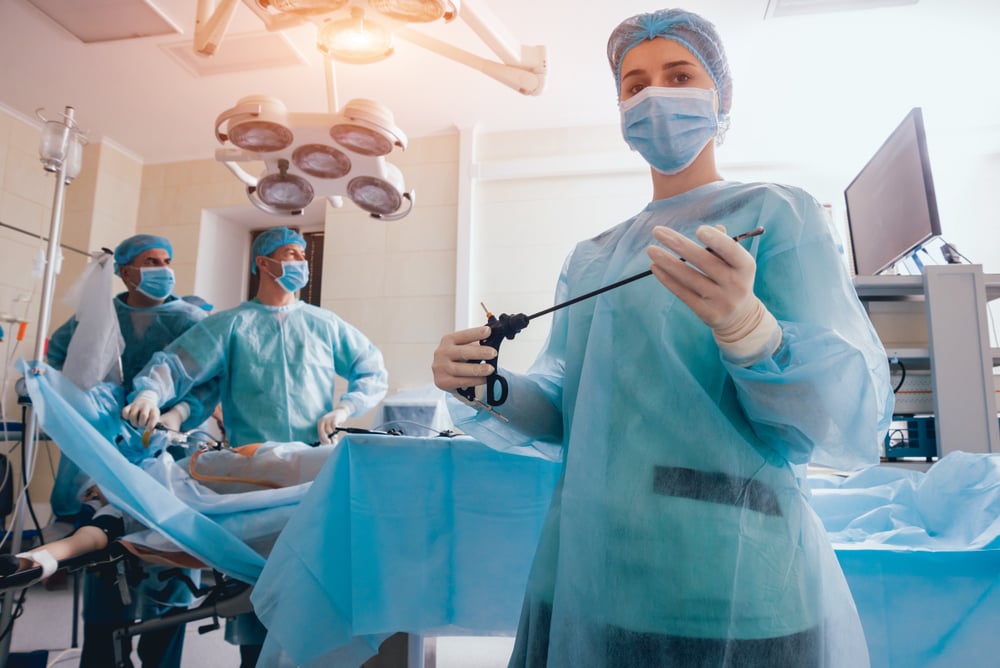Minimally Invasive Surgery in Commack
Top Experts in Minimally Invasive Procedures and Surgery in Commack: Garden OB/GYN
Gynecological procedures that once required open surgery, long incisions, and an extended hospital stay are now performed as outpatient procedures using minimally invasive surgery.

What to Expecet During Minimally Invasive Surgery?
When you undergo minimally invasive surgery, your procedure is performed using a few small incisions that are less than one-half inch long. The key instruments used in minimally invasive surgery are different types of endoscopes. All endoscopes are long, narrow tubes that contain lighting and a high-definition camera. Each type of endoscope varies in size, and some are flexible whiles others are rigid.
The two primary types of minimally invasive surgery performed by the team at Garden OB/GYN are named after the type of endoscope that’s used:
- Laparoscopy: uses a laparoscope that’s inserted through an incision in your abdomen
- Hysteroscopy: uses a hysteroscope that’s inserted through the cervix and into the uterus
As the laparoscope or hysteroscope send magnified images to a viewing screen, your doctor at Garden OB/GYN can examine tissues inside your body, diagnose the cause of symptoms like pelvic pain, and perform surgery.
When Should Adolescents Schedule Their First Gynecologic Exam?
Young women don’t need to schedule their first pelvic exam or Pap smear until they reach the age of 21 or they become sexually active. However, the American College of Obstetricians and Gynecologists recommends that young teens schedule their first gynecologic visit between the ages of 13-15 years. Making gynecologic care a regular part of a young woman’s preventive health routine empowers them to take control of their health. It also gives teens access to information about health issues, which may help them avoid common problems like STDs and unplanned pregnancy.
What are the Benefits of Minimally Invasive Surgery Compared to Invasive Surgery?
The team at Garden OB/GYN performs many minimally invasive surgeries in the office, so you can go home the same day. The smaller incisions cause minimal trauma to your body compared to the long incisions used for open surgery.
As a result, you gain important health benefits such as:
- Less blood loss
- Less postoperative pain
- Quicker recovery
- Minimal scarring
- Lower risk of infection
If your surgery requires a hospital stay, you’ll spend less time as an inpatient compared to the hospital time required for open surgery.
What Conditions can be Treated with Minimally invasive procedures?
The experienced doctors at Garden OB/GYN use minimally invasive surgery to treat many gynecologic problems.
A few of the most common conditions treated are:
- Ovarian cysts
- Uterine fibroids
- Uterine polyps
- Endometriosis
- Adenomyosis
- Pelvic adhesions
- Gynecologic cancer removal
Most procedures that were once performed using open surgery can now be done using minimally invasive techniques, including:
- Hysterectomy: partial or total removal of the uterus
- Myomectomy: removal of uterine fibroids while preserving your uterus
- Ovarian and fallopian tube cystectomies: removal of cysts
- Salpingo-oophorectomy: removal of one or both ovaries and fallopian tubes
- Endometrial ablation: removes tissues lining the uterus
If you have symptoms such as pelvic pain or heavy bleeding, or you’ve been told you need surgery and you’d like to explore your minimally invasive options, call Garden OB/GYN or schedule an appointment online.
































